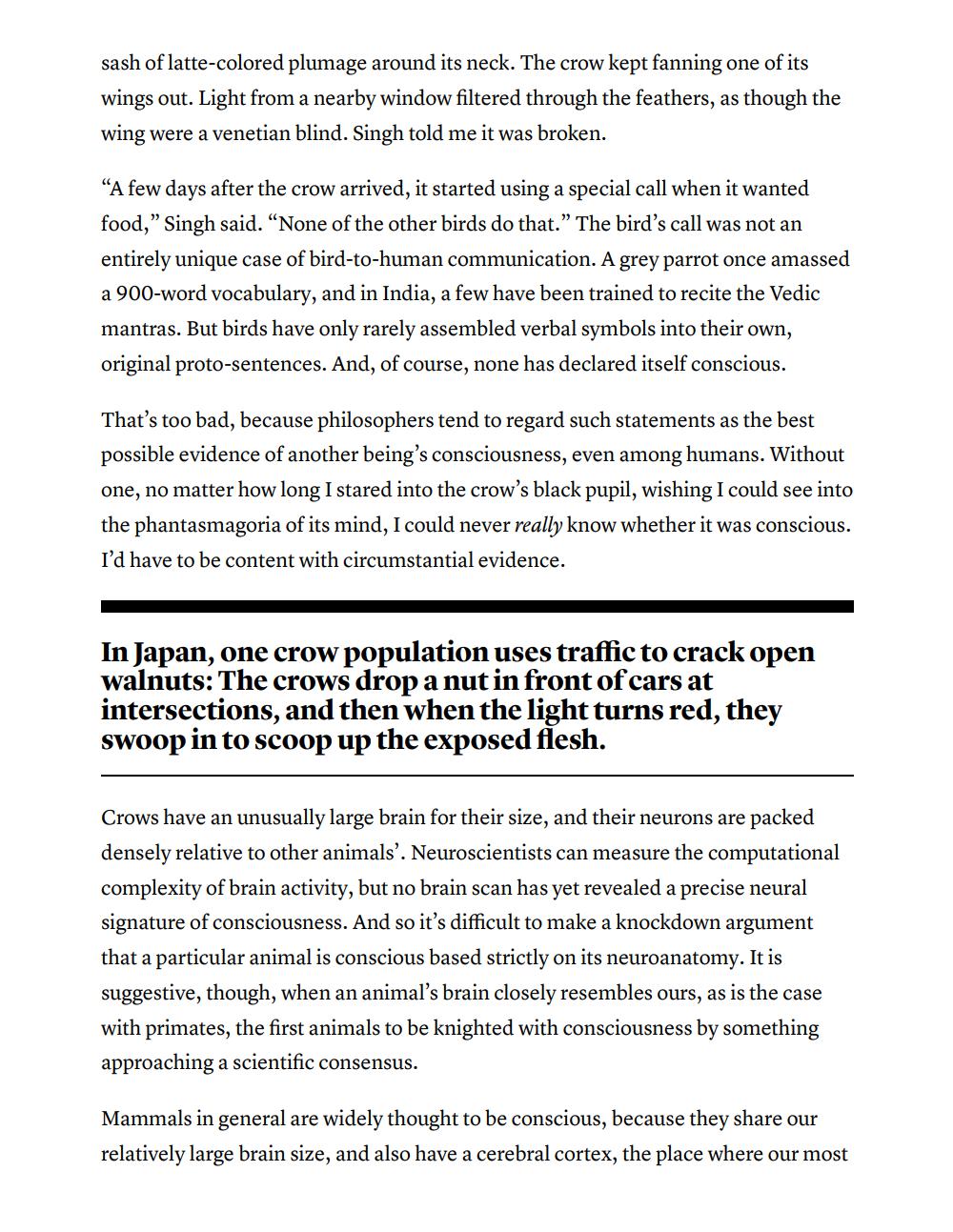Book Title: Journey Into The Animal Mind Author(s): Ross Andersen Publisher: Ross Andersen View full book textPage 8
________________ sash of latte-colored plumage around its neck. The crow kept fanning one of its wings out. Light from a nearby window filtered through the feathers, as though the wing were a venetian blind. Singh told me it was broken. "A few days after the crow arrived, it started using a special call when it wanted food,” Singh said. “None of the other birds do that." The bird's call was not an entirely unique case of bird-to-human communication. A grey parrot once amassed a 900-word vocabulary, and in India, a few have been trained to recite the Vedic mantras. But birds have only rarely assembled verbal symbols into their own, original proto-sentences. And, of course, none has declared itself conscious. That's too bad, because philosophers tend to regard such statements as the best possible evidence of another being's consciousness, even among humans. Without one, no matter how long I stared into the crow's black pupil, wishing I could see into the phantasmagoria of its mind, I could never really know whether it was conscious. I'd have to be content with circumstantial evidence. In Japan, one crow population uses traffic to crack open walnuts: The crows drop a nut in front of cars at intersections, and then when the light turns red, they swoop in to scoop up the exposed flesh. Crows have an unusually large brain for their size, and their neurons are packed densely relative to other animals'. Neuroscientists can measure the computational complexity of brain activity, but no brain scan has yet revealed a precise neural signature of consciousness. And so it's difficult to make a knockdown argument that a particular animal is conscious based strictly on its neuroanatomy. It is suggestive, though, when an animal's brain closely resembles ours, as is the case with primates, the first animals to be knighted with consciousness by something approaching a scientific consensus. Mammals in general are widely thought to be conscious, because they share our relatively large brain size, and also have a cerebral cortex, the place where our mostPage Navigation
1 ... 6 7 8 9 10 11 12 13 14 15 16 17 18 19 20 21 22 23 24
